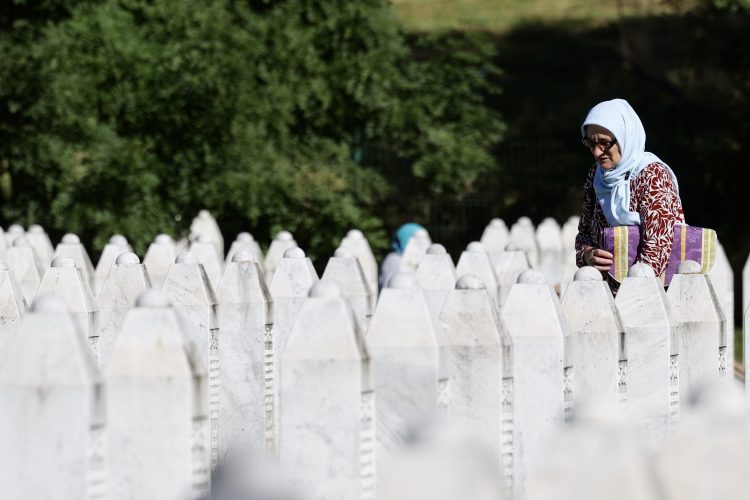
Associate executive vice president and general counsel of the World Jewish Congress, Menachem Z. Rosensaft dedicated part of his emotional address at the 27th commemoration of the 1995 Srebrenica Genocide to the memory of one of the victims, Nihad Nino Catic, and his late mother, Hajra Catic, who passed away last year without ever finding even a single bone belonging to her son. Pročitaj više
Rosensaft began his address by quoting the final radio broadcast from then 26-year-old Nino Catic.
“Srebrenica is turning into a vast slaughterhouse,” Catic warned on July 10, 1995.
“Each second, three deadly projectiles are falling on this town,” the young man said.
Rosensaft then explained that, as troops from the “breakaway predominantly Serb part of Bosnia, Republika Srpska, began implementing the final horrific stage of the genocidal slaughter of Srebrenica’s Bosniak inhabitants” the following day, Nino told his mother that he and his friends planned to escape through the woods.
He noted that Hajra Catic remembered watching her son and the other young people walking away. It would be the last time she would see Nino.
Catic, who founded and headed the Association of the Women of Srebrenica, searched for her son's remains for 26 years.
“She was a driving force behind the creation of this powerful and moving Memorial here at Potocari,” Rosensaft said.
“We have difficulty visualizing 8,372 murdered men and boys, their images and faces merging into one another, just as we are unable to conceptualize the six million Jews murdered in the Holocaust,” he said, arguing that, “in order for the rest of us to be able to truly relate to the enormous human tragedy of the Srebrenica genocide, especially on a day like today, we, too, must think of the individual victims, and try to imagine their fear, their anguish, their pain, and the monstrous way they were killed.”
“What can I, the son of two survivors of Auschwitz and Bergen-Belsen, tell you, the survivors of the Srebrenica genocide and your families that you don’t already know and feel? We understand, of course, how heartbreaking this anniversary is for you. But it is also of momentous significance for all who care about international human rights, for all who have a conscience,” he added.
Rosensaft then quoted Elie Wiesel’s Nobel Peace Prize acceptance speech:
“Wherever men or women are persecuted because of their race, religion, or political views, that place must – at that moment – become the centre of the universe.”
“In July of 1995, Srebrenica indeed became the centre of the universe, and the international community must be forced to remember the crime against humanity, the genocide, that it allowed to happen here because of its abject failure and refusal to prevent it from happening,” Rosensaft said.
He noted that the world was warned that such an atrocity could happen, arguing that “Nino Catic was far from alone in trying to sound the alarm.”
“Samantha Power, David Rohde, and other war correspondents had covered the gruesome developments of the war in Bosnia. But their words failed to set the world on fire, just as 42 and 43 years earlier, the reports of the systematic annihilation of European Jewry fell largely on deaf ears,” he said.
Rosensaft expressed support of the initiative of the Commissioner for Human Rights of the Council of Europe, Dunja Mijatovic, to declare July 11 Remembrance Day of the Srebrenica genocide.
“This should be done not just out of respect for its victims, but as a public countermeasure to the repeated efforts, especially — but by no means exclusively — in Republika Srpska, to deny this genocide,” the stressed, referring to Bosnia’s Serb-majority entity.
He said that genuine reconciliation “must be rooted in truth, in a common understanding of established facts.”
“And the facts are that, over the course of several days beginning on July 11, 1995, Bosnian Serb paramilitary thugs commanded by General Ratko Mladic murdered more than 8,000 Muslim men and boys between the ages of 12 and 77 from Srebrenica and its surroundings, which the U.N. Security Council had previously designated “as a safe area which should be free from any armed attack or other hostile act”,” he said, adding that Bosnian Serb forces also “forcibly and viciously expelled” 25,000 Bosniak women, children, and elderly men from the Srebrenica enclave.
He also warned about the danger of genocide denial.
“We cannot allow the deniers of the Srebrenica genocide to continue to spread their lies with impunity, or to try shamelessly to shift the blame to the victims, as was done last year in a report by a self-styled “independent” commission appointed by authorities of the Republika Srpska, now an “entity” cemented into the 1995 Dayton Agreement that ended the fighting but created a dysfunctional system of governance for Bosnia that threatens the peace to this day. That report was an intellectual and jurisprudential abomination that flies in the face of unambiguous and consistent findings by the International Court of Justice and numerous panels of the International Criminal Tribunal for the Former Yugoslavia that a genocide was indeed perpetrated at Srebrenica,” he said.

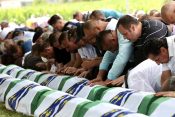
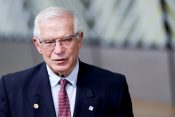
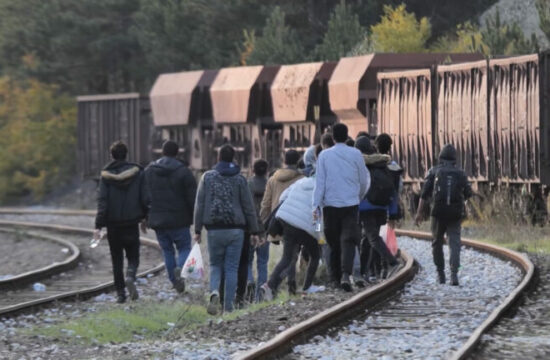
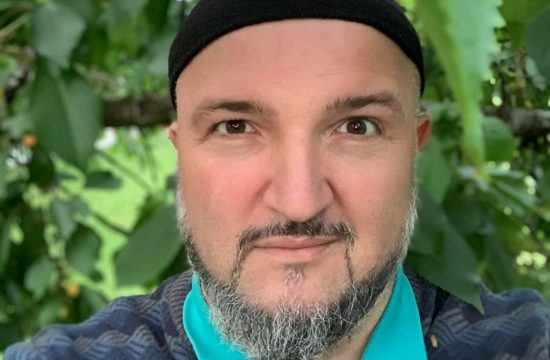

Kakvo je tvoje mišljenje o ovome?
Budi prvi koji će ostaviti komentar!